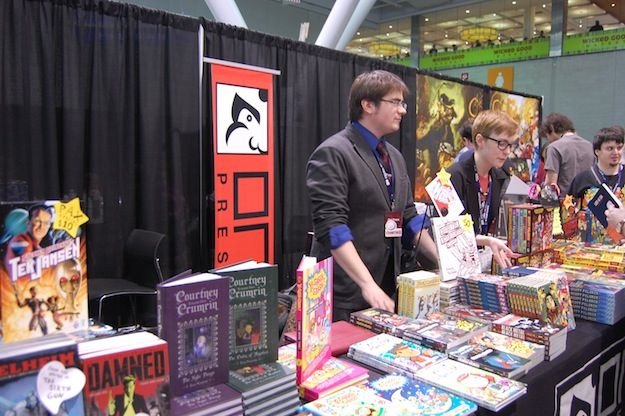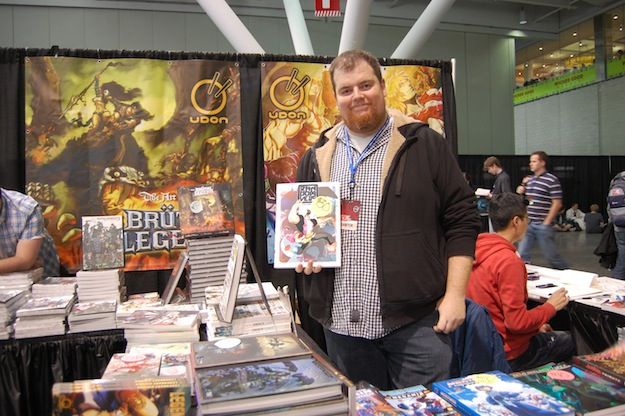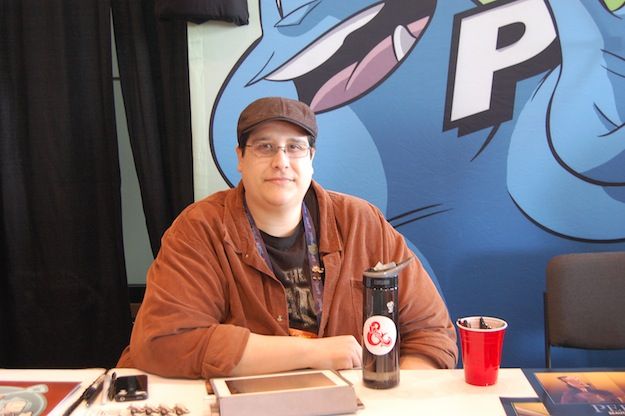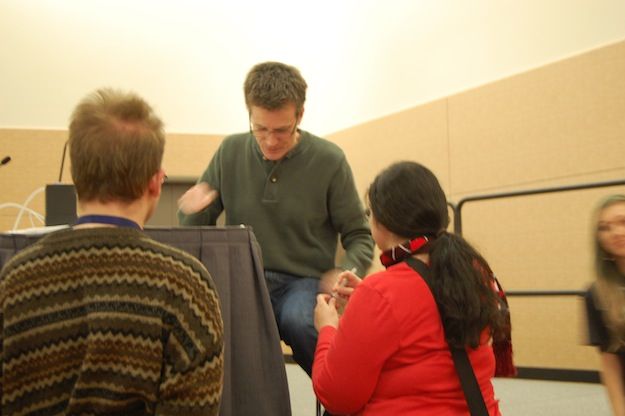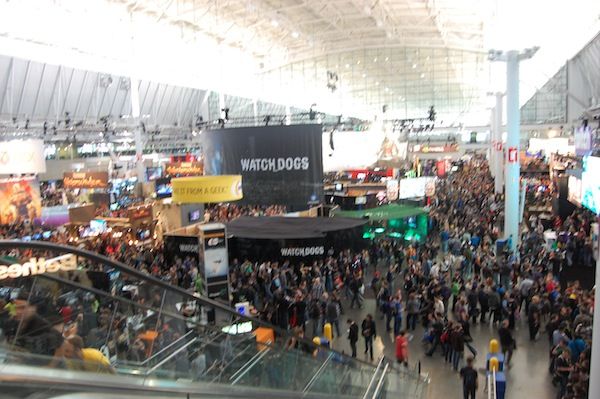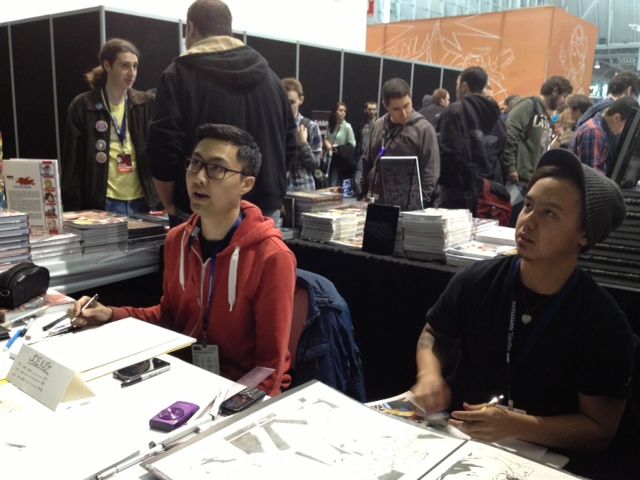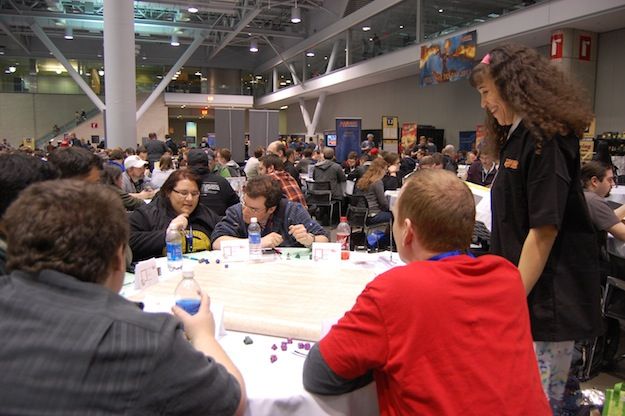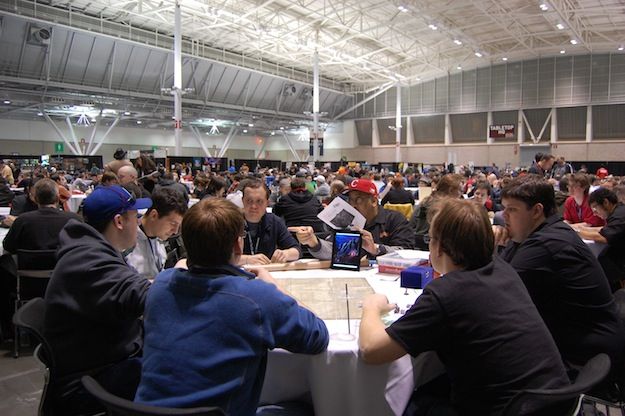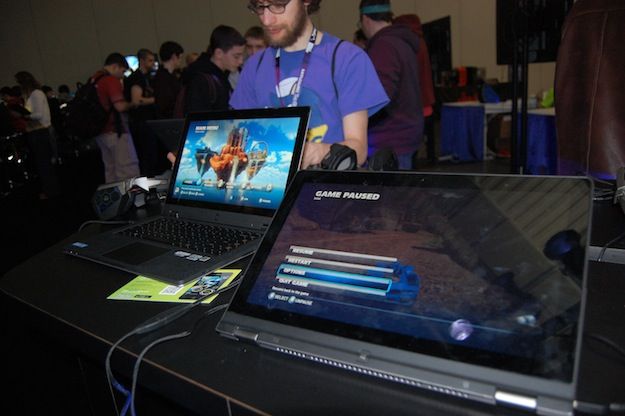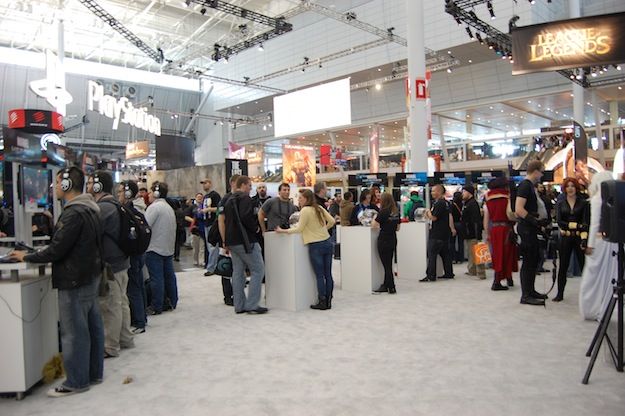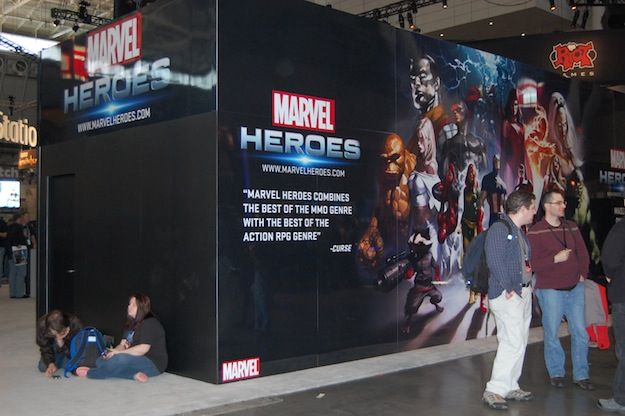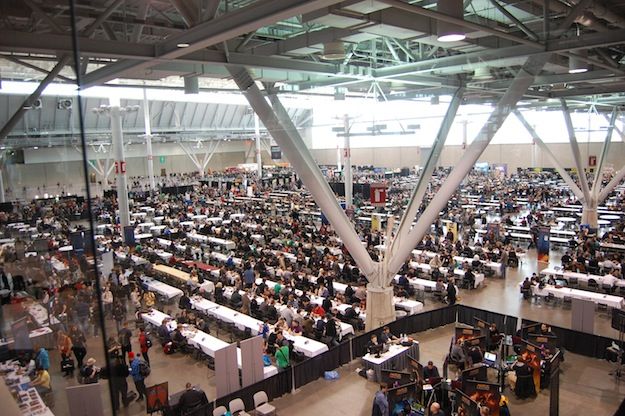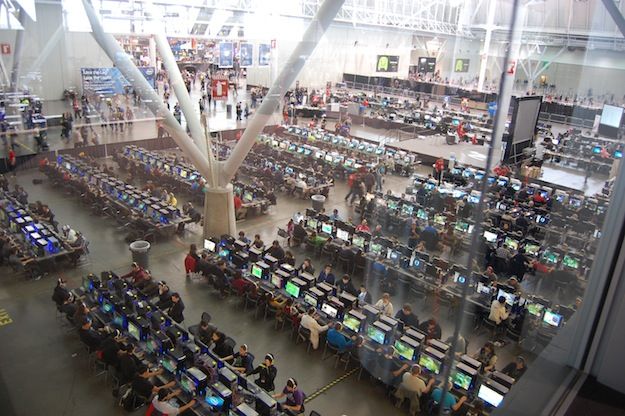Going to PAX East in Boston over the weekend was like going to a comic convention on another planet.
The gestalt was the same — the exhibit floor, the booths, the cosplayers, the panels — but everything was a little off. The crowd was bigger and younger. Huge screens advertised properties I knew by name only. A lot of the attendees were glued to consoles or computer screens, playing games; one side of the convention center was split into a massive tabletop gaming area and an even bigger PC gaming section. The part that really came closest to a comic con was the indie area on the exhibit floor, where developers were hand-selling their games the way indie creators promote their graphic novels.
I'm no gamer (I don't even own a game console), but I resolved to go to PAX East last year after falling into a series of conversations with creators and marketers at Comic-Con International who were enthusiastic about gamers as the new comics audience.
Although it is almost exclusively a game event, PAX East springs from a comic: It's the brainchild of Penny Arcade creators Jerry Holkins and Mike Krahulik, who organized the first Penny Arcade Expo in 2004. (Now there are two consumer shows, PAX Prime in Seattle and PAX East in Boston, with PAX Australia launching in July.) Holkins and Krahulik held panels every day, and the latest print volume of Penny Arcade, published by Oni Press, debuted at the show. At the publisher's booth, Oni's Director of Business Development George Rohac presided over a wide range of books; people are often drawn by the Scott Pilgrim books, he said, but then Oni's other titles, such as The Sixth Gun and Sharknife, catch their eye. Oni is also publishing Double Fine Action Comics, collecting a webcomic by Scott C., the art director for the game developer Double Fine. Both Oni Press and Double Fine had a limited number of hardcover collectors' editions at their booths.
At the Udon Entertainment booth, video-game art books and Street Fighter graphic novels were moving briskly; at the end of the weekend, Marketing Director Christopher Butcher said he had sold almost his entire inventory. Udon announced five new art books at the Capcom panel, and brought artists Joe Ng (Street Fighter Origins: Akuma) and Edwin Huang (Skullkickers) to do signings and sketches at their booth. "The sweet spot was the $40 price point that most of our art books and oversized graphic novels were at," Butcher said. "The hardcover limited editions were a harder sell, and the mangas and digests people just weren't interested in, even at the lower price point."
Scott Kurtz, the creator of PvP, was at the convention to preside over a different type of games/comics crossover: He has a new webcomic, Table Titans, about a group of Dungeons & Dragons gamers, and through an arrangement with Wizards of the Coast, the characters play in the real D&D "world." But that's not all. In the original PvP story that spawned Table Titans, the characters play an imaginary Dungeons & Dragons game, The Mines of Madness, which is ridiculously difficult; no character can survive it. "Wizards asked if I would be interested in making The Mines of Madness an actual module that people can play," Kurtz said. "I said it wouldn’t be very fun because it's designed to kill players mercilessly, and they said that actually would be pretty fun to play." So he worked with D&D designer Chris Perkins to put the game together and they tested it at PAX East. The first test accommodated 180 players, and they had to turn away another 120; a Wizards of the Coast staffer told Kurtz it was their biggest D&D event ever.
Attendees packed in to hear Bill Amend, creator of the comic strip Fox Trot, talk about his favorite video games and show off a selection of his geekiest strips. He also demoed a Jason Fox Math Quiz iOS app he's been working on. "It's totally not polished," he said. "The joke is I've got all the logic and code working, it's the UI art and animation that is taking forever."
The PAX events are designed specifically to cater to console, PC and tabletop gamers, and comics are deliberately given a small role. It's not likely that comics will take over PAX East the way television and movies have taken over Comic-Con. Still, a growing segment of the comics industry is finding new readers in the gaming world, whether through licensed properties such as Dark Horse's Mass Effect comics and Udon's Street Fighter graphic novels, gamer-friendly books like Scott Pilgrim and Skullkickers, or simply good fantasy comics that happen to be on the right table at the right time. It seems like the gaming audience is predisposed to like comics, whether because of the presentation or their love of good stories, and since the audience is huge, it presents a rich opportunity for creators who are willing to cross over a bit.

